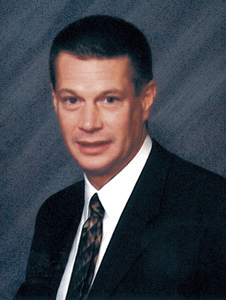FINANCIAL PLANNING STILL IMPORTANT AFTER RETIREMENT
 Throughout your working years, you save and invest so that you can create a comfortable lifestyle in retirement. After you’re retired, though, you still need financial planning if you’re going to maintain that lifestyle.
Throughout your working years, you save and invest so that you can create a comfortable lifestyle in retirement. After you’re retired, though, you still need financial planning if you’re going to maintain that lifestyle.
To keep your retirement plans on track, you can take a number of steps. Here are a few of the most important ones:
• Determine your income level. Before you retired, you knew where your money was coming from — your paychecks. But in retirement, you may have multiple sources of income — investments, Social Security, pensions and retirement plans, such as your 401(k). Once you know how much money you have coming in, you’ll know how much you can afford to withdraw, so that you won’t run the risk of outliving your resources.
• Protect tax-deferred vehicles. Many people assume they’ll automatically enter a lower tax bracket when they retire. But that’s not the case. If you have significant income from savings, retirement plans and investments, you could easily stay in the same tax bracket — or even move up. That’s why it’s important to preserve your tax-deferred accounts — such as your IRAs and 401(k) — as long as possible. Try to withdraw as little as you can from these vehicles, especially during your early retirement years. Look instead to other sources of income, including Social Security, personal savings, tax-exempt municipal bonds, and, if you have one, a traditional pension.
• Don’t sell all your stocks. Today’s healthier lifestyles have enabled many people to live two or three decades in retirement. That’s a lot of years to pay for — so you may still need some growth-oriented investments, such as stocks. A qualified financial professional can help you choose those stocks that meet your individual risk tolerance and fit within your diversified portfolio. Also, when you sell stocks, especially those with a substantial gain, you could change your tax situation. So, before you sell, consult with your tax adviser, in addition to your investment professional.
• Don’t rush into an expensive new lifestyle. Many people have big plans for retirement. They’ll buy a recreational vehicle (RV) and travel around the country. Or they’ll buy a condominium by a golf course and hit the links every day. Or they’ll purchase a home by the lake and stay there six months of the year. There’s nothing wrong with any of these goals, but they can be dauntingly expensive. Before you plunge into a costly new lifestyle, try it out first. Instead of buying an RV, condo or cottage, rent one. You’ll be under no long-term obligation, and you’ll learn whether your “dream” lifestyle is really what you expected.
• Consider part-time work. Don’t close the door to work just because you’re formally “retired.” If you enjoyed what you did in the working world, consider doing it on a part-time basis or as a consultant. You’ll be doing something you like, while you bring in income that can help preserve your retirement funds. Be aware, however, that your earned income could affect the amount of Social Security that you receive.
By making the right financial and investment moves, you can achieve the freedom you need to make your retirement years rewarding and enjoyable. So, think carefully about what you need to do — and then do it. A happy retirement is waiting.
- Celebrating 20 Years Of Community At The Stand - April 12, 2024
- First Positive Case Of Chronic Wasting Disease In Indiana - April 12, 2024
- Southwest Allen County Schools Embark On Major Tree Plantings - April 12, 2024


